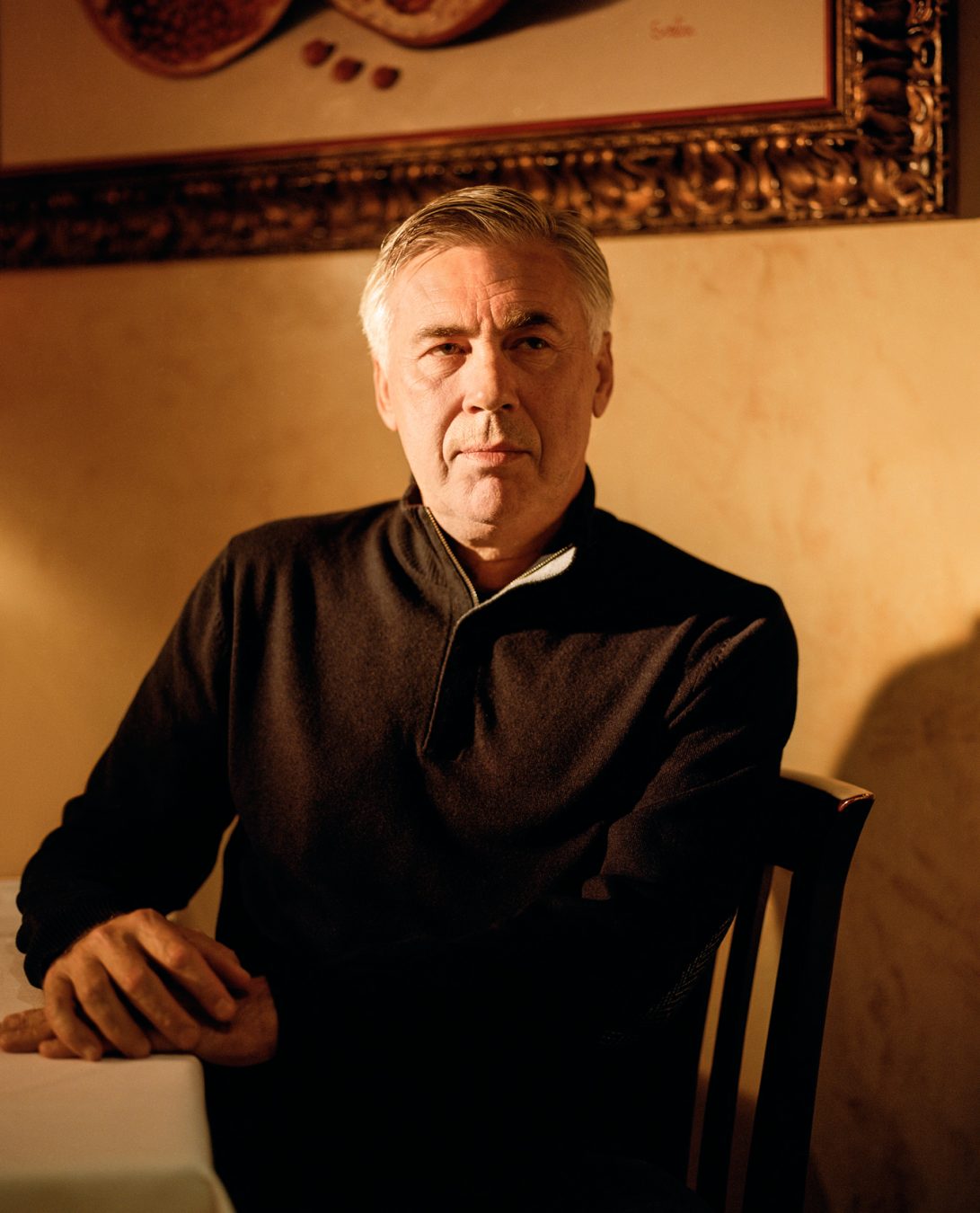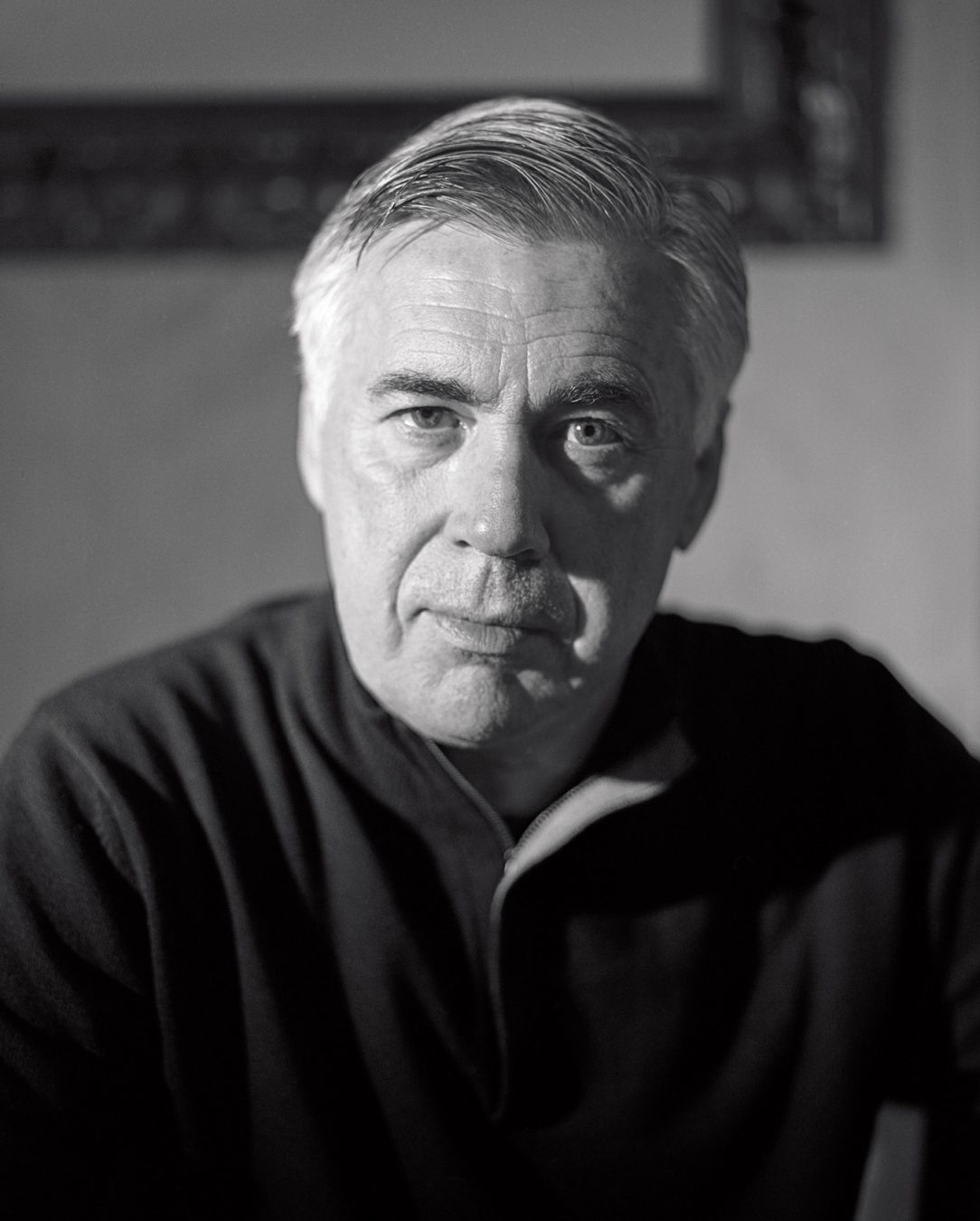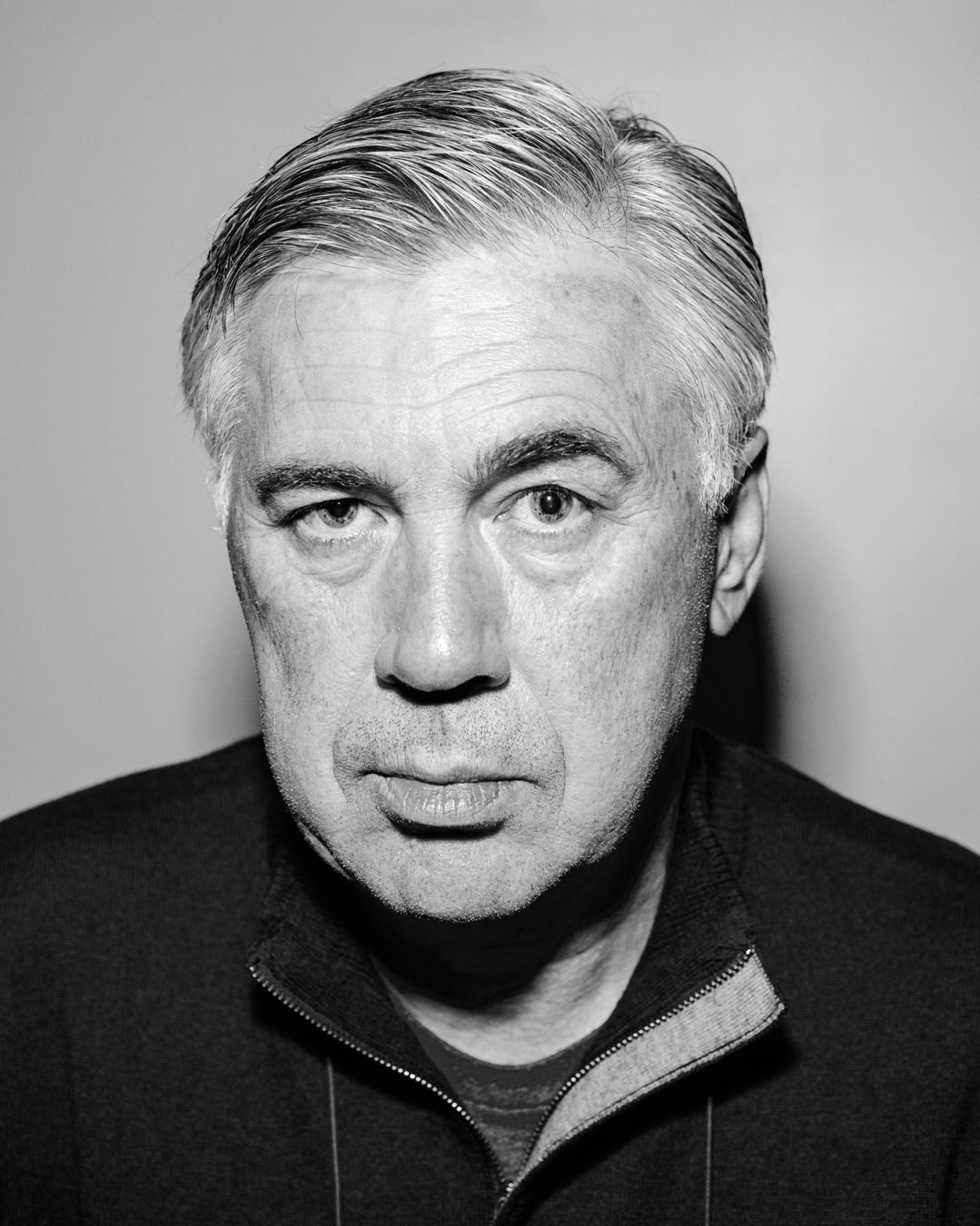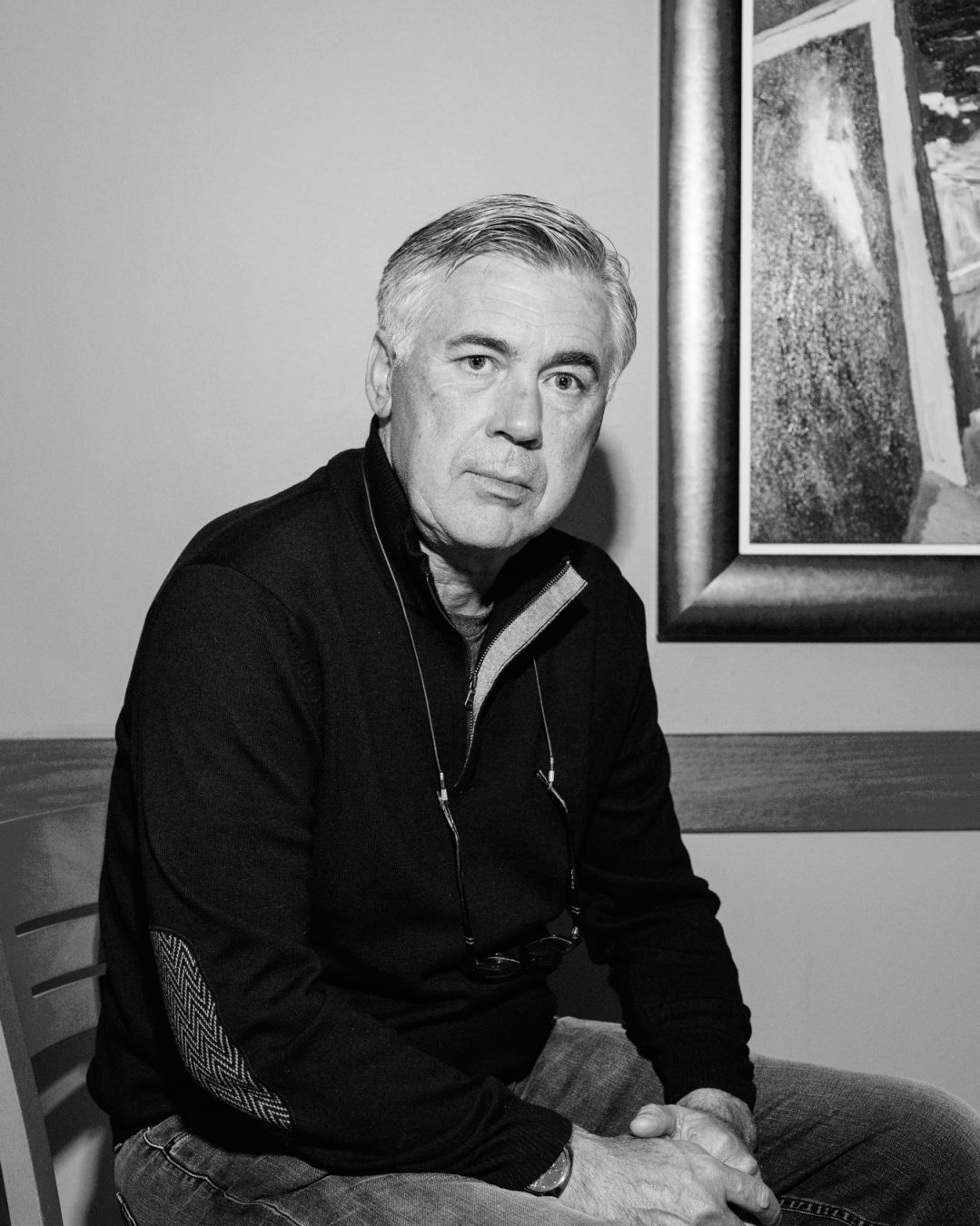It is not quite three on a Thursday afternoon. Chef Pino Posteraro is in the enoteca section of his restaurant, Cioppino’s. He and one of his cooks are rolling, kneading, rolling, kneading pasta dough with which to make some agnolotti. The filling, a pumpkin and spice mixture that is fragrant enough to fill the entire space, is already made, waiting to be introduced into the dough. Jefferson Alvarez is there, observing, learning from the maestro. “You can’t really make pasta unless you learn from the best,” he says. Posteraro stops, smiles and says, “So you will need to meet my mother.” They laugh and carry on, until Carlo Ancelotti arrives, at which point things come to an immediate, if temporary, halt.
He creates a buzz when he walks into a room, something he has gotten used to over the years, from his playing days as a star midfielder in Italy through his illustrious coaching and managerial career at the top of the world football pyramid. He warmly greets Posteraro, with whom he is good friends, and then makes acquaintance with the few other people in the room, before sitting down to talk.
His storied playing career began in Roma, and concluded at AC Milan, where he was playing when he was named to the national team for the 1990 World Cup (he was on the 1986 team as well, as a reserve). The Italian side eventually finished third in that tournament, which was won by Germany. But by then, Ancelotti had begun the thought process, embracing the idea that moving into the management side of the game he loved was a natural progression, and, of course, the best way to stay involved. “The last year I played, I was asked by the national team to work as an assistant coach, and I said yes immediately,” he says; that was in 1992. “I learned very much from that experience on the national side, before managing my first team, in the second division at Reggiana.” That was in 1995.
Ancelotti’s strengths as a player became his strengths as a coach, as well. “The team must always come first, no matter who you are,” he explains. “Team play is the only way to succeed at the highest levels of the sport.” He is firm on this, and acknowledges that “from the time I started, in 1974, to today, things have totally changed. Players are in better condition, there is so much movement of talent between clubs, and the game itself has evolved. The rhythms are different, the pace is higher. But to work as a team, that is still the same.” He takes a moment before emphasizing how things have changed. “When I played, talent could get you far. Today, talent alone is not nearly enough. I coached [Cristiano] Ronaldo for most of three seasons, and he is proof of what I say. He may have been the most talented player in the world, but he was also the hardest working player on our club, always trying to improve, get better. And he understood the team concept.”
He is a thoughtful man, but has no problem making decisions, and has proven over time, since his managing career began fully 20 years ago, that he knows how to get the best out of his players. “The most important word in football is balance,” Ancelotti says. “That means both with, and without, the ball. My job is to convince each player to have the same goals, put the team above all else.” Success has come, certainly. He has won the UEFA Champions League three times, and reached the finals a fourth time. What more is there to accomplish? “I love the game, and certainly want to be back in it,” he says. “Preferably with a team that has a chance to win.” He has spent nearly a year away, undergoing successful back surgery, and “walking and fishing” in Vancouver, where he resides in the off-season with his Canadian-born wife. “It is so beautiful here, I love it,” he says. He and his wife were, in fact, married in Vancouver. But the maelstrom of big-league soccer is not something he plans to stay away from. He recently decided to take the reins at the iconic Bayern Munich, a storied history, replacing a famous if idiosyncratic coach in Pep Guardiola, but fully prepared to seize the opportunity to take a talented team to the very top.
“The team must always come first, no matter who you are. Team play is the only way to succeed at the highest levels of the sport.”
There is a fair amount of weight to be carried, though. “The pressure is on the club, on the manager, on the players; it is fierce, intense,” he says. “That is why you have to focus on controlling the things you can control, and shut out the things you cannot control.” He pauses for a moment. “In Spain, at Real Madrid, and in Italy, at Milano, the pressure was high, almost crazy, and it was constant. A whole different thing, culturally. I think that is why in Spain, and certainly even more so in Italy, there is so much emphasis on defence. They play not to lose, sometimes. The British teams have much more attack, it is part of the culture there, and there are so many clubs with rich history.”
The overall approach remains, no matter where he coaches. “You build something together, as a team,” Ancelotti explains. “To stay at the top is very difficult.” Clearly, the competitive fire is there, and the desire to bring yet another team to the pinnacle is foremost on his mind. And even in Vancouver, his fame and his influence are remarkable. This past Major League Soccer season, New York City FC flew in to play the local Vancouver Whitecaps. The New York team features three European league stars, who have for various reasons decided to bring their careers to a close in North America: Andrea Pirlo, David Villa, and Frank Lampard. These highly decorated players, all veterans and champions in their own right, played in the Vancouver match, and had dinner with Ancelotti as well. It was a meeting of the minds.
Ancelotti is not an overtly egotistical person, but he knows his own brain, and his quiet passion for the game is clear enough. “Another opportunity to play for a championship, that is the greatest thing,” he says. Then, almost out of thin air, two plates of salad arrive, followed by two plates of the pumpkin agnolotti. “Pino!” he shouts. “This is exactly what my mamma made for our family every Friday in the autumn. It is fantastic.” The talk turns to his early life on the farm, something that stays with him, and is possibly a direct cause of his modest approach to the great fame and fortune he has achieved. “There is nothing like it,” he says, as the espresso arrives. “Build a team, everyone working together to achieve the best results, and a championship.” He is one of the rare few who have known that feeling more than once, and he is ready now for another round.
Grooming by Melanie Neufeld.
_________
Like this story? Get more great content delivered right to your inbox.












